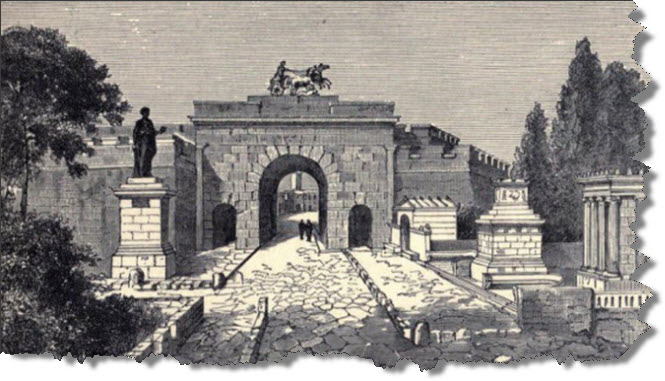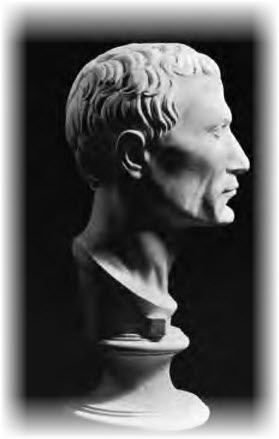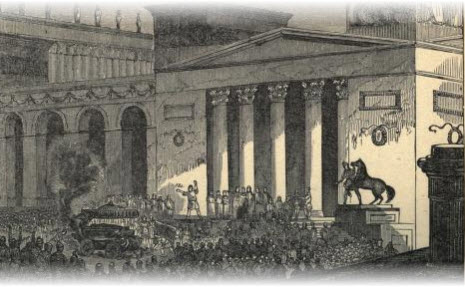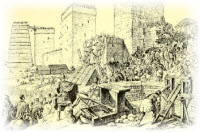Julius Caesar
| Roman Empire | Browse Topics | Alphabetical index | Site Map | Site News | Links |
 |
|||||

Caesar
In 53 Caesar proceeded against the Gallic tribes to reduce them to obedience, and in 50 accomplished the final victory over all the Gauls. His vast success made him the most powerful citizen of Rome, while his army gave him loyal and enthusiastic support. In 48 he became a candidate for the consulship, which he desired to hold without giving up his military command. This did not meet the approval of the senate and excited the jealousy of Pompey.
However, he crossed the Rubicon, a small stream forming the boundary of his province, and moved upon Rome to make himself master of all Italy. The senate and Pompey fled to Greece. He hastened to Spain to overthrow Pompey's legates, and defeated Pompey's powerful army in Greece, in the famous Battle of Pharsalia in 48 B. C. Pompey fled to Egypt to escape captivity, but was murdered on reaching Africa.
The reports of Caesar's victories rapidly spread throughout Rome, and he was made dictator for one year, consul for five, and tribune for life. From Greece he passed into Pontus, Asia, and defeated Pharnaces, sending the news of his victory to the senate in these words: "I came, I saw, I conquered." In 40 he defeated Scipio at Thespius, in the province of Africa, upon which Cato suicided at Utica to escape falling into Caesar's hands.
Caesar was now undisputed master of Rome. He demonstrated his rare tact and ingenuity by
instituting many reforms and by displaying great personal magnanimity. The people soon
made him dictator for ten years and his victories were celebrated by magnificent games. In
45, after defeating the two sons of Pompey in Spain, he was made imperator for life, and
the coins of the realm received an imprint of his portrait, while the month Quintilius was
changed to Julius in his honor. His public benefactions include the founding of libraries
and the erection of many public buildings. He enlarged the harbor of Ostia, drained the
Pontine marshes, corrected the calendar, constructed a canal across the Isthmus of
Corinth, and made many other internal improvements.

Caesar's Funeral
Although Caesar had become the ruler of the Rome and its territories, he was not formally or in name the Emperor. Rome continued to be a Republic, though in name only. Caesar refused to accept the crown when it was offered to him at the festival of the Tupercalia, but the aristocracy was led to conspire against his life. While in the senate he was assassinated by twenty-three wounds being inflicted by the daggers of treacherous friends on the ides of March, in 44. His former personal friends, Brutus and Cassius, were among the conspirators, which moved Caesar to exclaim, "Thou, too, Brutus?" Caesar was the most famous statesman and general of his time, and ranked as the greatest orator, next to Cicero. He is classed as a profound scholar and a great historian. The only history from his pen now extant is "Commentaries on the Gallic and Civil Wars."
Julius Caesar: [1] [2]Back ....

A Besieged City
| Privacy Policy | Site News | About | Site Map |